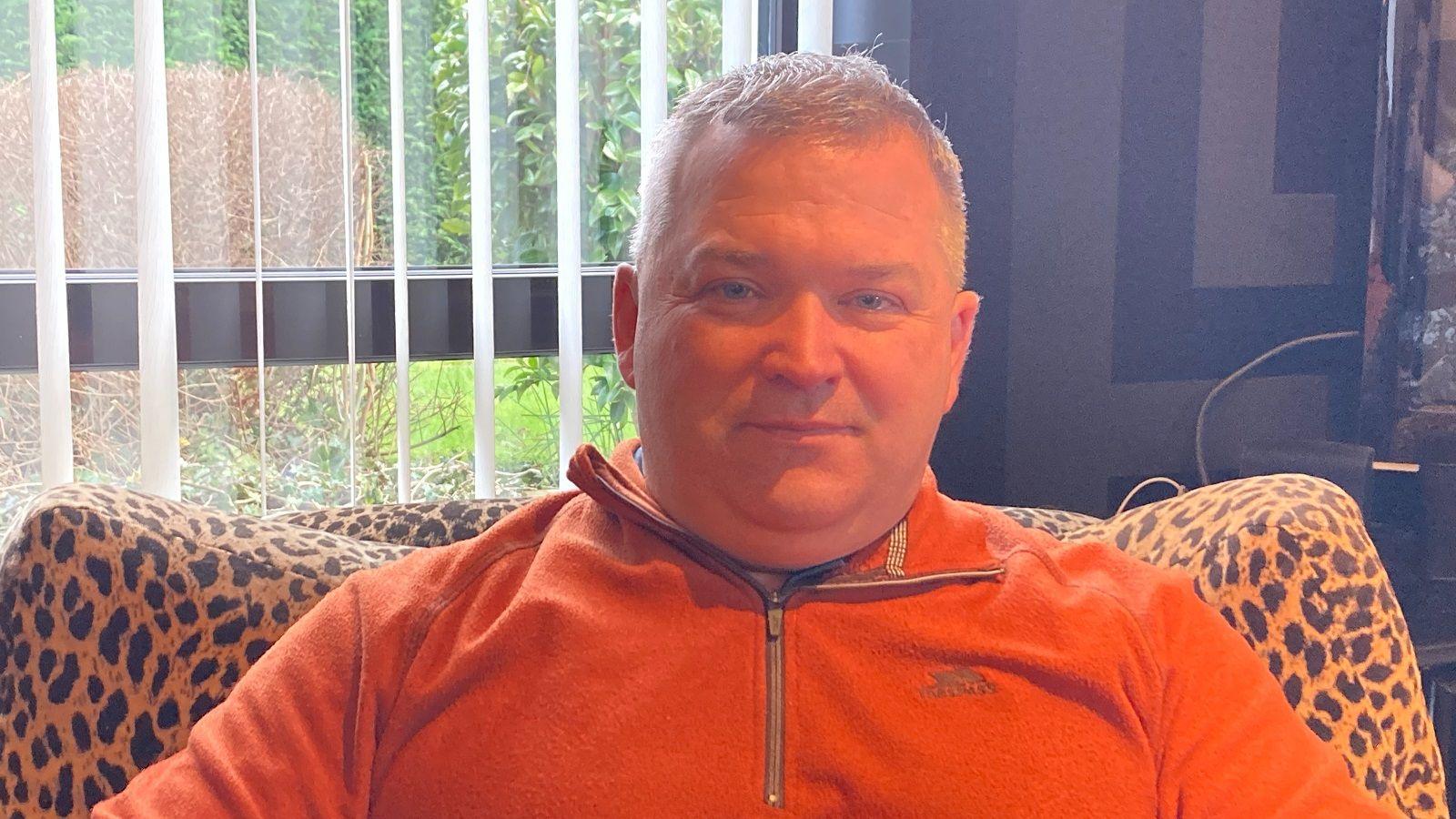'People get quite scared - as first responders, we give reassurance'
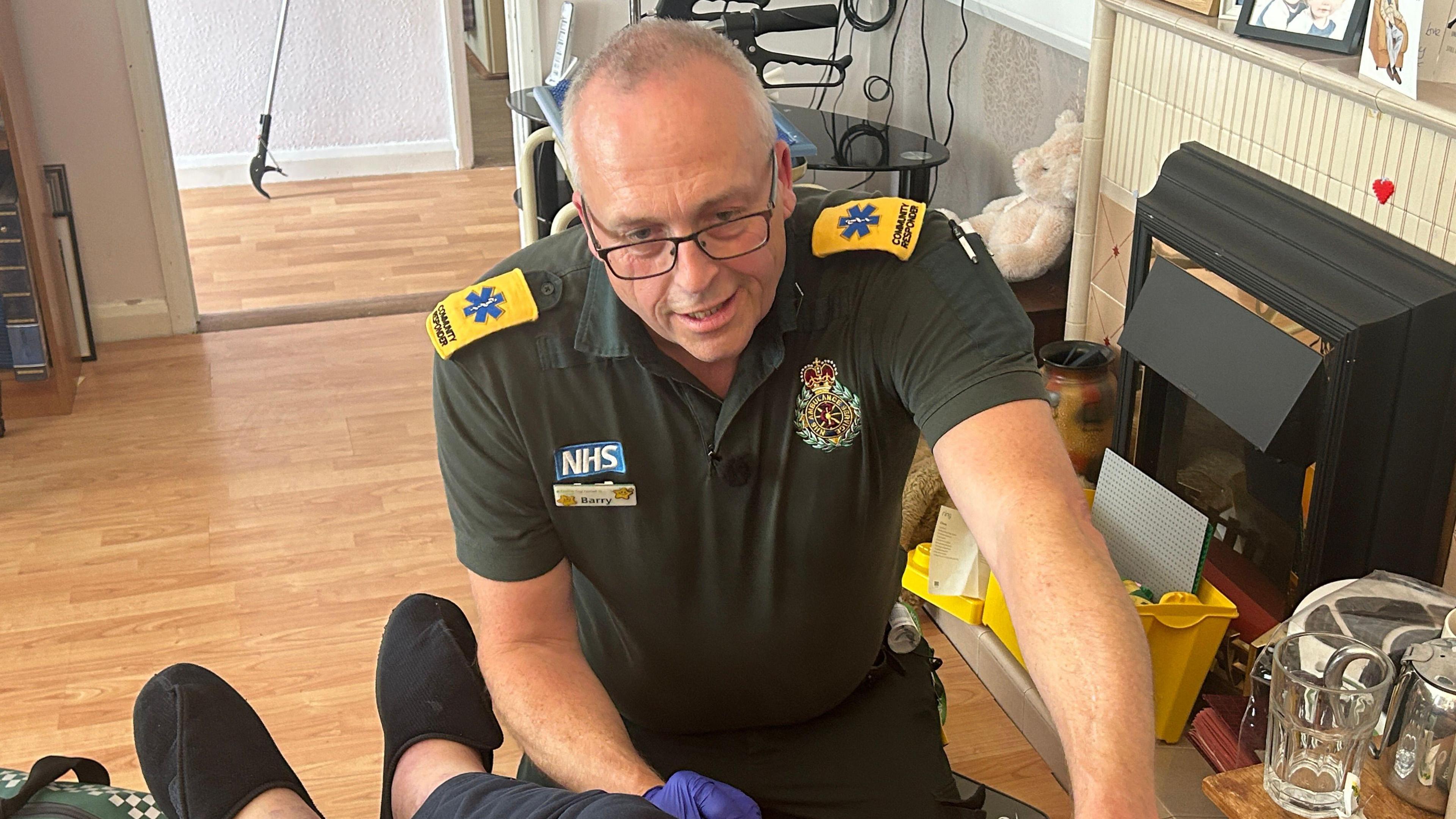
Community first responder Barry Catton assists a poorly elderly man
- Published
"New incident, category three."
This is community first responder Barry Catton's first call of the day, being sent to an 87-year-old man who is poorly and unable to get out of his chair.
Barry starts by taking the patient's vital signs and is quickly backed up by an ambulance crew.
He is also able to access support from clinicians at the South Western Ambulance Service NHS Foundation Trust (SWASFT) emergency operations centre in Exeter, Devon.
"We've got his legs lifted. We've also got some water in him to try and lift his blood pressure.
"The paramedics are trying to see if they can find the right pathway, rather than just taking him to hospital," he says.
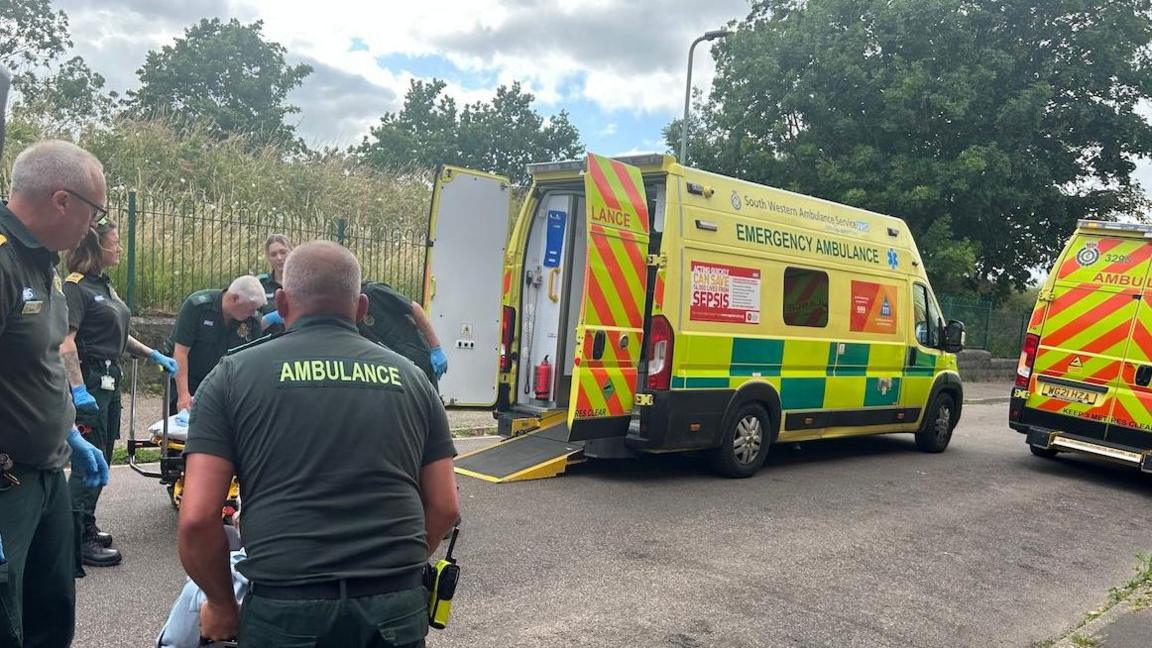
Community first responders often reach patients in rural areas before an ambulance arrives
Mr Catton, 61, from Exmouth, Devon, started volunteering as a community first responder (CFR) in the West Midlands 15 years ago before continuing the role when he moved to the south-west of England.
He attended 500 jobs for SWASFT in 2024 and was already on target to beat that figure in 2025, he said.
"I sign on most evenings for between one and seven hours, and I normally get a call out every two to three hours," he says.
He describes it as a "privilege" to treat people in their homes at their worst time.
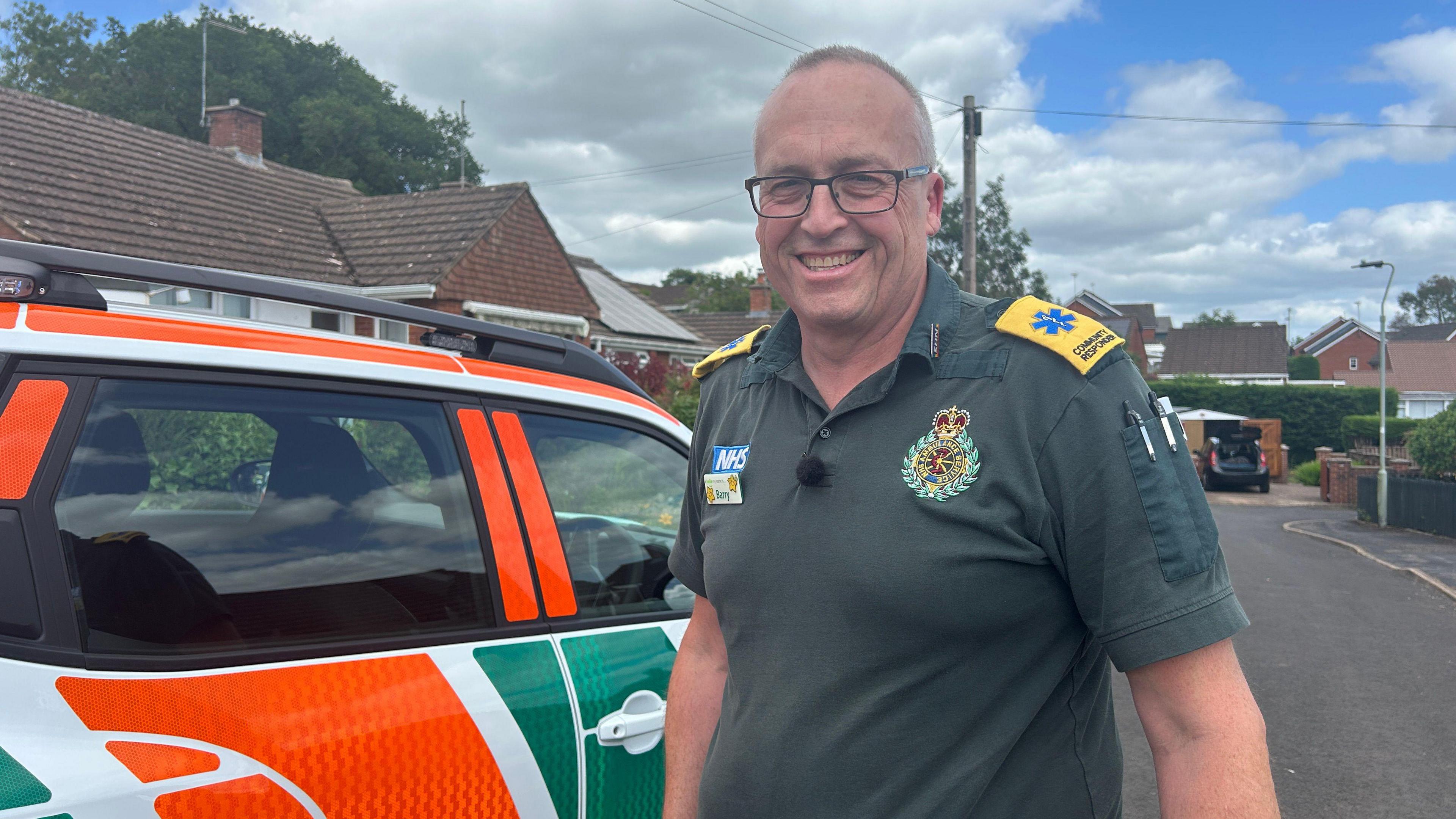
Barry Catton started volunteering as a community first responder 15 years ago
CFRs play a vital role, particularly in rural areas where they often reach patients before an ambulance arrives.
These trained volunteers, who wear official SWASFT uniforms, attended nearly 30,000 emergency 999 calls between April 2024 and March 2025.
Of those, 25% were life-threatening category one emergencies.
And, about 10% of the time, CFRs were the only resource required to see the patient, while being supported remotely by specialist paramedics or clinicians.
"As responders, we are expected to do around 12 hours a week, but many of us do a significant amount more," says Mr Catton.
He adds that, as they generally drive their own cars, they must keep to the speed limit and do not get blue light exemption.
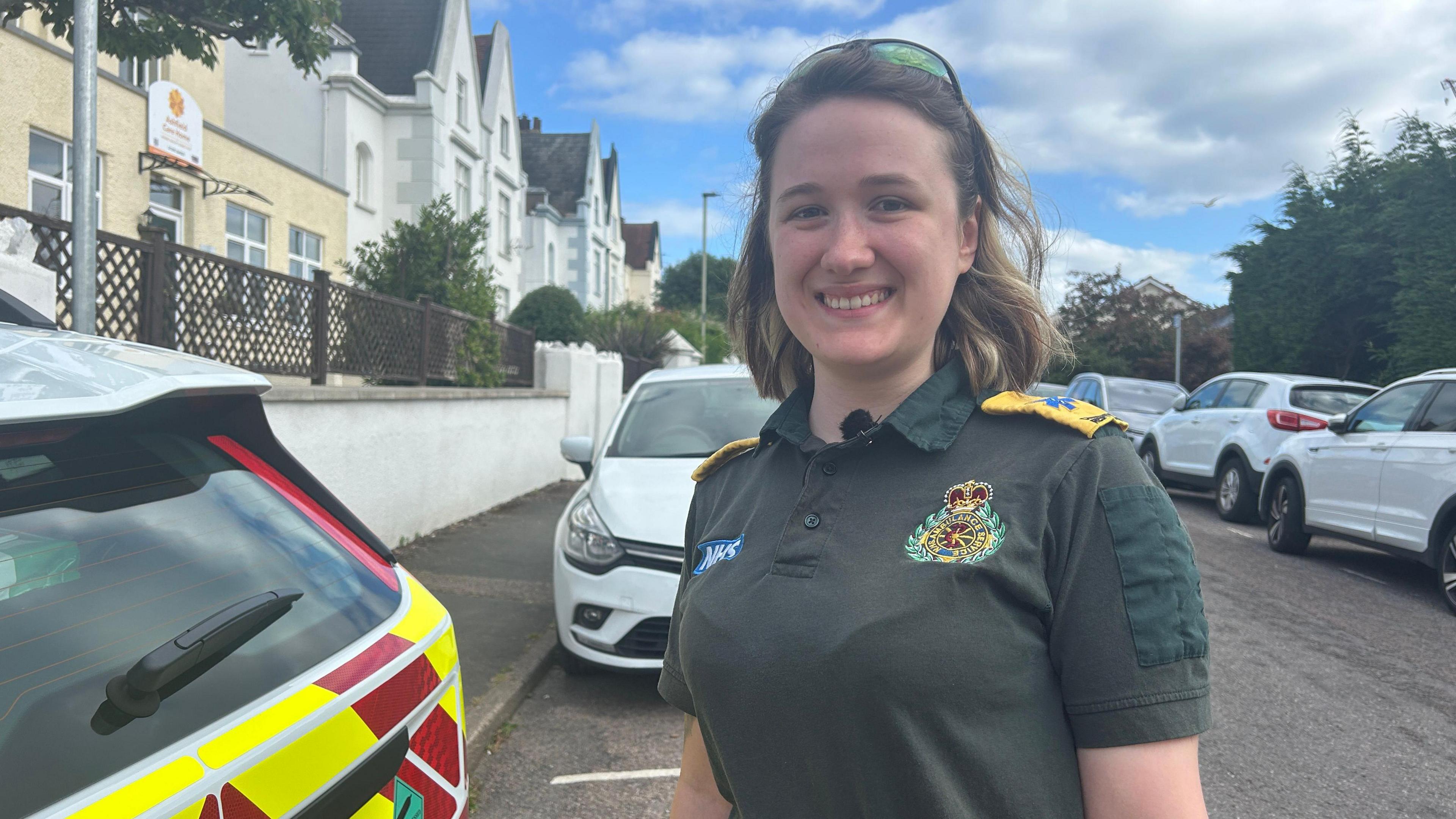
Becky Melville spends about 12 hours a week volunteering as a CFR
Becky Melville, 26, from Barnstaple, Devon, spends about 12 hours a week volunteering as a CFR.
She says: "It's quite frightening for patients to be waiting a long time for an ambulance, and a lot of the time they are quite scared.
"So it's nice to give that reassurance and provide some care for them until the ambulance gets there."
Asked if she had saved a lot of lives, she answers: "I'd like to think I have."
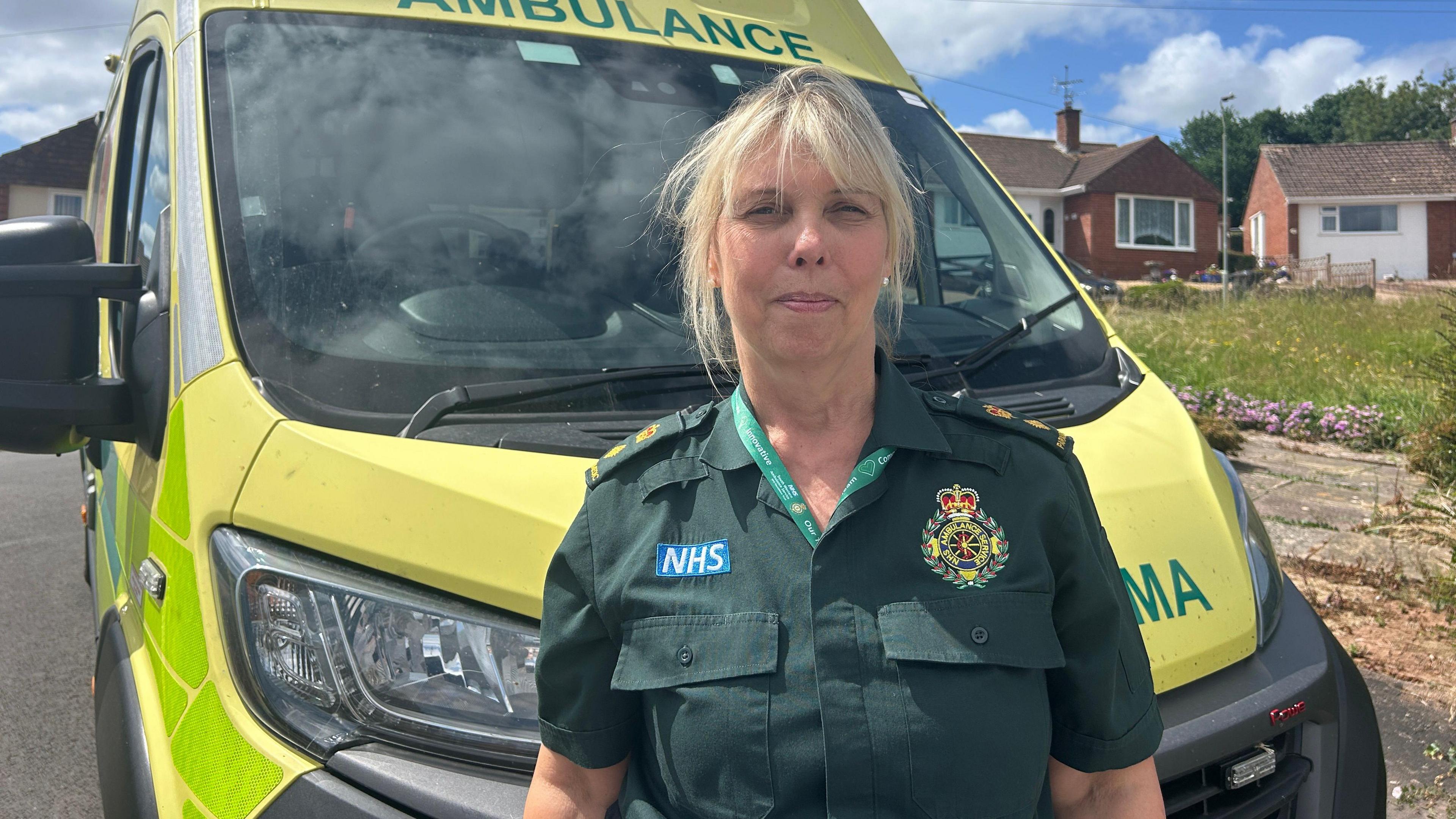
Jane Whichello, of the SWASFT, says CFRs are "a lifeline to local communities"
The SWASFT covers Bristol and the former Avon area, Cornwall and the Isles of Scilly, Devon, Dorset, Somerset, Gloucestershire and Wiltshire.
It said that included providing ambulance services across an area of 10,000 sq miles (25,900 sq km), some 20% of mainland England.
Currently, the SWASFT has a whole host of people available to help save lives within their local community, including nurses, engineers, postal workers, and teachers.
There were 650 CFRs across the region — its highest number ever — and the service was actively recruiting more, bosses said.
"Our CFRs are a lifeline to local communities," says Jane Whichello, trust head of volunteering and community services.
"They provide vital reassurance, life-saving treatment, and often arrive before an ambulance — making a critical difference in emergencies."
Follow BBC Cornwall on X, external, Facebook, external and Instagram, external. Follow BBC Devon on X, external, Facebook, external and Instagram, external. Send your story ideas to spotlight@bbc.co.uk, external.
- Published9 July
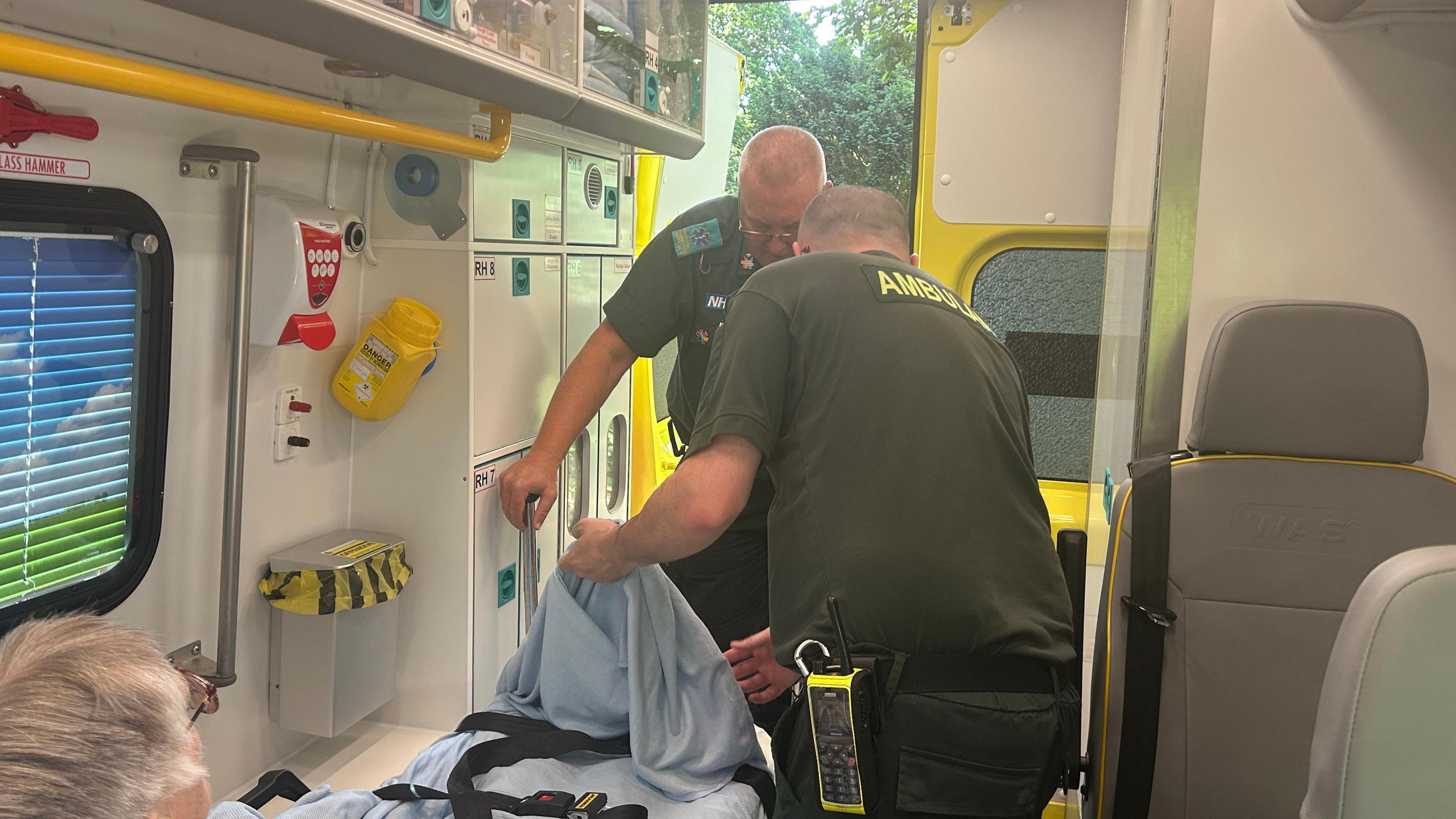
- Published7 June
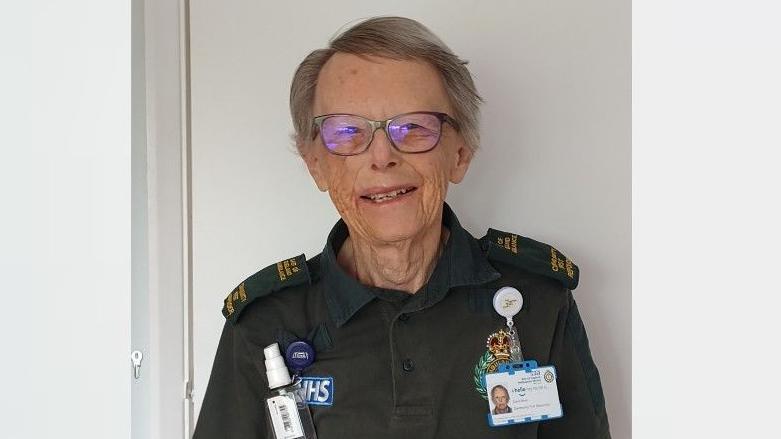
- Published12 March
